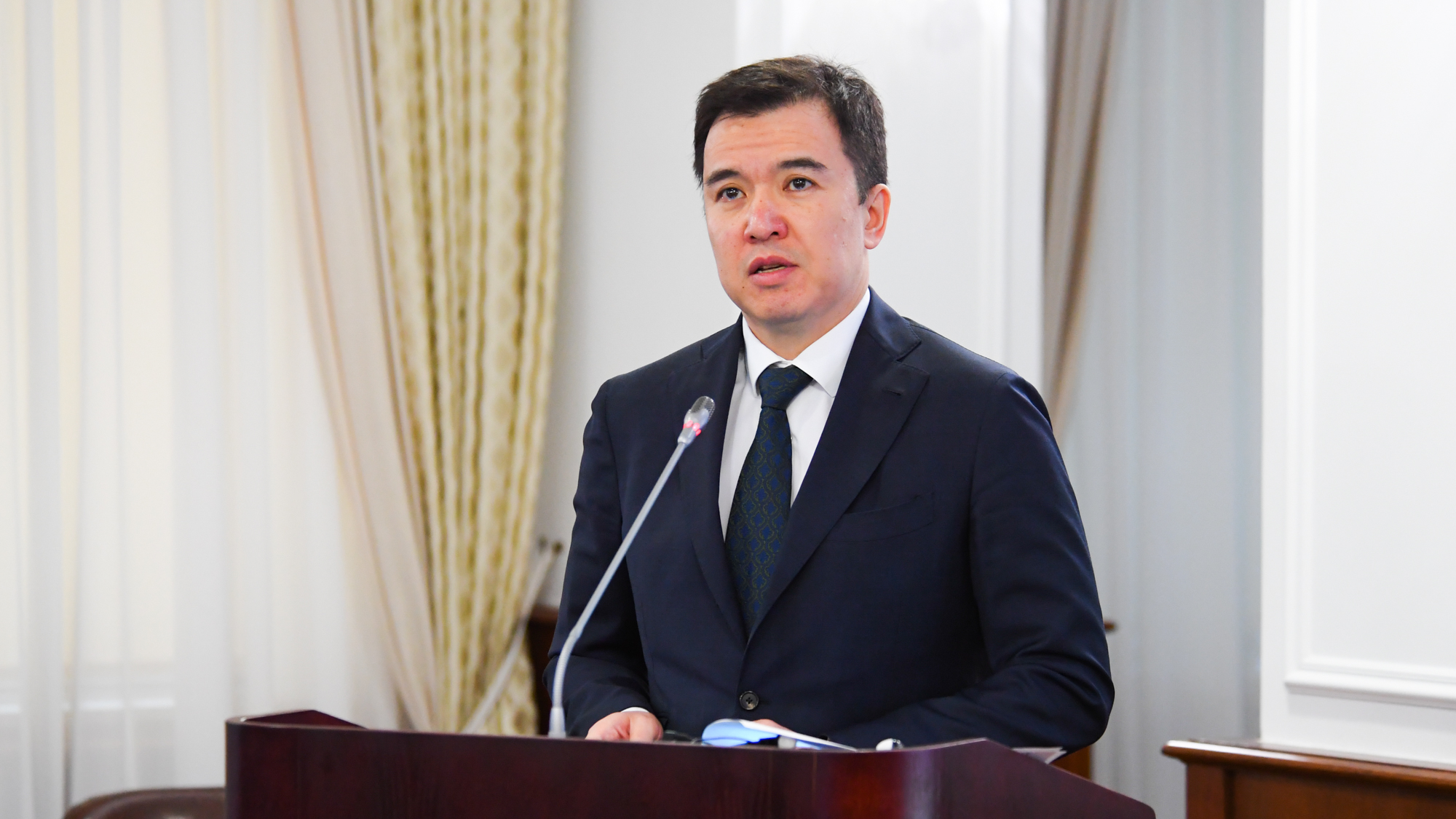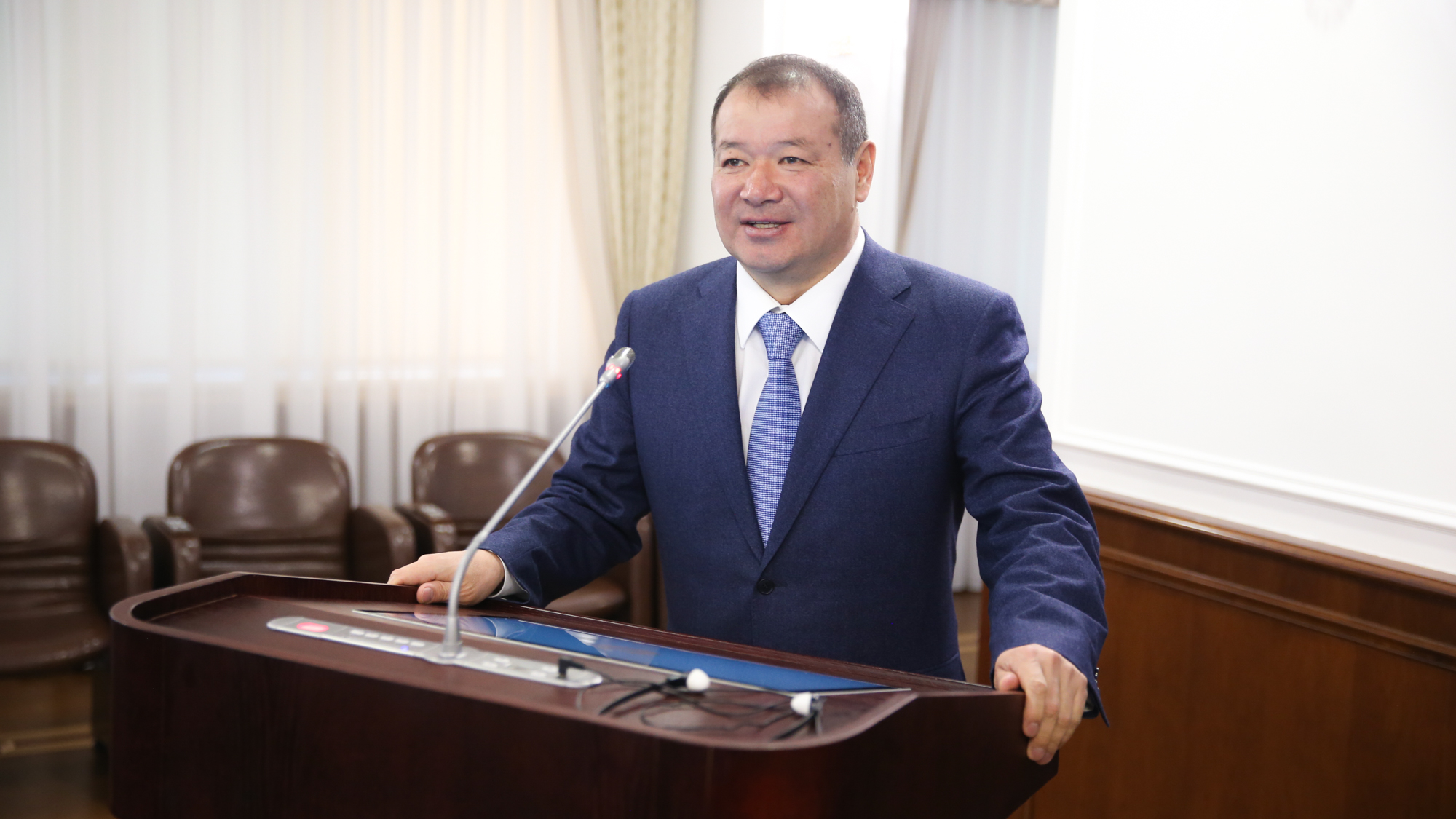10 March 2020, 10:31

At the Government session chaired by Prime Minister Askar Mamin, the results of the country's socio-economic development and the implementation of the republican budget for January-February 2020 were considered.
Minister of National Economy Ruslan Dalenov reported on the state of the economy according to the results of two months. According to him, a significant decrease in oil and metal prices is observed on world commodity markets.
As of March 9, 2020, oil quotes were $34 per barrel. This is two times lower compared to the beginning of the year. At the same time, the intraday value reached $31 per barrel. Metal prices are also showing a decline. Zinc prices fell 16%, copper — 12%, iron ore — 4%, ferroalloys — 1.2%.
“There is high volatility in global capital markets. Since the beginning of the year, US stock indices have decreased by 14%, European indices — 15%, Chinese indices — 13%. These trends reflect high uncertainty in foreign markets,” said Dalenov.
In the current period, the credit rating of Kazakhstan has been updated. International rating agencies (Fitch Ratings, Standard and Poor`s) affirmed Kazakhstan's sovereign credit ratings. The forecast is kept at the stable level. At the same time, Standard and Poor`s assigned a rating on March 6, 2020, Fitch Ratings — on Feb.21, 2020.
According to external international experts, a stable outlook is associated with macroeconomic stability, available reserves of domestic demand and an increase in the non-oil sector.
According to the Minister of National Economy, taking into account the external environment and external conditions, scenario forecasts for the development of the economy and the corresponding package of measures have been developed. Approaches to ensure a balanced budget have been formed. In this case, the financing of social obligations of the state will be fully implemented.
“There are regional stabilization funds for food products. The situation on the labor market is being monitored. A pool of investment projects is being implemented. These measures are aimed at maintaining macroeconomic stability,” said the minister.
So, in January-February 2020, GDP growth was 3.3%. A positive indicator is provided by an increase in the volumes of construction, industry and trade. The growth of investments in fixed assets amounted to 11.6%. Annual inflation is at the upper limit of the target corridor of 6%. In the basic sectors of the economy in January-February of this year continued positive dynamics. In construction, there was an increase of 11.9%, in communications — 10.7%, industry — 5.8%, trade — 3.6%, and agriculture — 2.2%.
“In January 2020, foreign trade turnover amounted to $6.7 billion. Export volumes — $4.3 billion, imports — $2.4 billion. A positive trade balance was ensured. The industry growth rate was 5.8%. At the same time, the manufacturing sector (9.4%) grew at a rate twice as high as mining (4.7%). In 8 regions, industrial volumes grew from 5.9% to 8.3%. In the manufacturing sector, growth of 9.4% was achieved. Five regions showed growth above the national average,” said Dalenov.
In January-February 2020, 1.5 trillion tenge was invested in the economy. Growth in the construction sector was 11.9%. Since the beginning of the year, 1.7 million m² of housing have been commissioned. Agricultural output grew by 2.2%.
In general, according to the minister, following the results of two months of this year positive dynamics remain.
At the same time, in order to minimize the consequences of external calls, central and local executive bodies need to concentrate on the following aspects:

First Vice Minister of Industry and Infrastructure Development Kairbek Uskenbayev reported that, taking into account changes in the external economic situation, the Government has now adopted a package of operational measures to stabilize the situation in the industry, aimed at:
So, within the framework of the implementation of the Nurly Zhol and Nurly Zher state programs, emphasis will be placed on the maximum involvement of domestic enterprises in the supply of goods, work and services, which will ensure the loading of enterprises in the manufacturing sectors of building materials, metallurgy, chemistry and other related sectors.
So, in 2020, as part of state programs, it is planned:
According to Uskenbayev, measures will be taken in the metallurgical industry aimed at organizing the production of goods of higher processing:
“In the chemical industry, it is planned to support domestic enterprises through subsidizing agricultural producers with the cost of mineral fertilizers of only domestic production, developing state support measures for industry enterprises that are ready to produce raw materials for the development of the paint and varnish industry, production of building materials and other related industries, and studying the possibility of concluding long-term contracts between domestic explosive producers industrial chemicals from to ionalnymi companies, backbone enterprises, mining companies," said the first vice minister of industry and infrastructure development.
In engineering, the following systemic measures will be initiated:
The following measures will be taken in the pharmaceutical industry:
In general, issues of stabilization of the situation in industry are under constant control of the Ministry of Industry and Infrastructure Development. Activities of an operational and strategic nature are actively being taken to prevent further changes in situations in the external economic situation.
Stay updated about the events of the Prime Minister and the Government of Kazakhstan - subscribe to the official Telegram channel
Subscribe